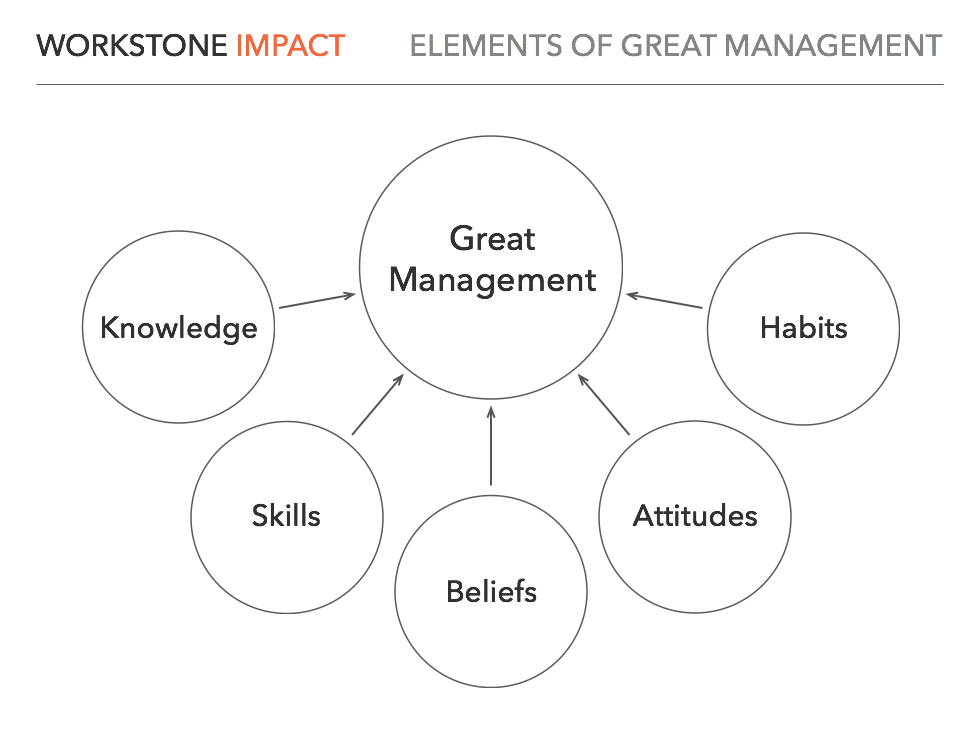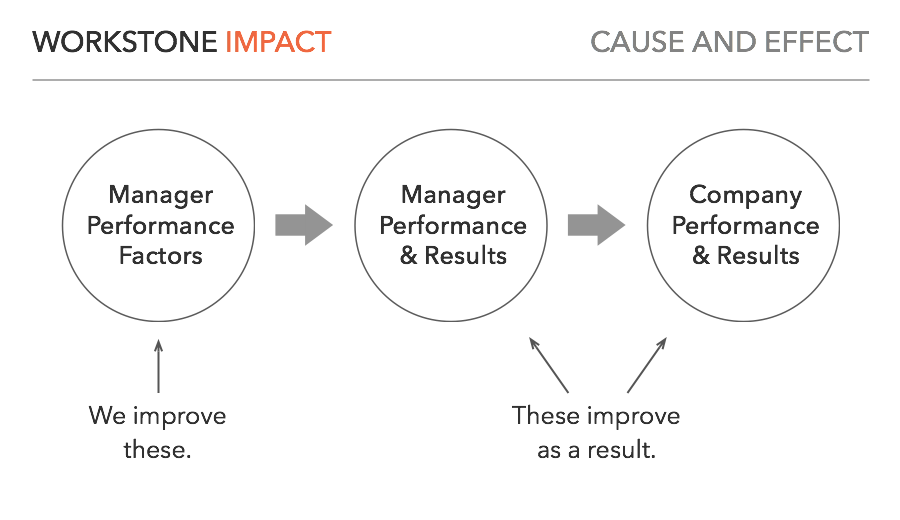Impact
It's a question that leads to long discussions, because every good answer depends upon the complexities of a particular business and its people. Despite that fact, however, some things always remain constant—including what it takes to be a great manager.
What Sets Great Managers Apart
We often say that managing is a set of skills that can be learned. It's true, and saying it gets an important point across quickly—that we can develop great managers in a reliable way using a structured process that focuses on a clearly-defined set of skills—but it’s not the whole story.
Providing great management does require a specific set of skills, but it also requires the right kinds of knowledge, beliefs, attitudes and habits.

Knowledge includes managerial know-how, understanding of business principles and practices, and knowledge specific to the environment within which the manager works (industry, company, department, location, etc.). Above all, it's practical knowledge about managing people and business, and it's knowledge that supports the development of important skills and habits.
Skills include:
- Character skills, which enable a person to recognize and improve essential character strengths, both in oneself and in others.
- Relationship skills, which enable a person to build relationships and work well with other people.
- Execution skills, which enable a person to act effectively and manage the work of others to get things done in business.
Beliefs include assumptions and expectations about people and business that affect a manager's ability to contribute well to the company and to other people. Beliefs contribute to the development and persistence of attitudes.
Attitudes include a manager's views about people, work and business. Attitudes also relate closely to a manager's approach to working with people, tackling challenges and achieving results.
Habits include all of the things that a manager does regularly. A manager's habits are the result of putting knowledge, skills, beliefs and attitudes to work on a consistent basis. They're the result of sustained practice. Over time, a manager's habits are what determine his or her overall contribution to the company, to other people, and to the success of the manager's own career.

